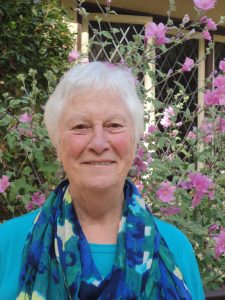- All
- Wisdom
- We Stand on Their Shoulders
- Vocation
- Uncategorized
- Stories Seldom Heard
- Spirituality
- Social Justice
- Prayer
- Peace
- Oneness
- Love
- Letting Go
- Lent
- Joy
- Inspirational Images
- Hope / Healing
- Holy Week
- Gratefulness
- God's Presence
- General News Stories
- Forgiveness
- Finding God
- Faith
- Easter
- Dominican Saints
- Discipleship
- Courage
- Christmas
- Catholic Sisters Week
- Care of the Earth
- Blessing
- Beauty
- Advent
- #justiceOPportunity
The Prophet Obadiah Has an Important Warning for Us
Sr. Patricia Bruno, OP

254th Edition – September 2020
 Welcome to Stories Seldom Heard. As you read the title of this article you were probably thinking, “What is Obadiah’s warning?” And “Who is Obadiah? I have never heard of Obadiah.” This would not be an unusual response. Even the scripture scholars do not know exactly who Obadiah was or when he lived. Yet, the Book of Obadiah is one of the prophetic books in the Bible. It’s not a well-known book. It is not used in any of our Eucharistic liturgies. It is very short: only twenty-one verses. Obadiah uses fiery language, and his anger is particularly directed towards the House of Edom which represents the tribe of Esau. So why are we reading and reflecting on this prophetic book? It doesn’t sound like it has much relevance in our modern world. Besides don’t we hear enough bad news each day? However, perhaps we should not be too fast to dismiss it. It might be more relevant than we at first think.
Welcome to Stories Seldom Heard. As you read the title of this article you were probably thinking, “What is Obadiah’s warning?” And “Who is Obadiah? I have never heard of Obadiah.” This would not be an unusual response. Even the scripture scholars do not know exactly who Obadiah was or when he lived. Yet, the Book of Obadiah is one of the prophetic books in the Bible. It’s not a well-known book. It is not used in any of our Eucharistic liturgies. It is very short: only twenty-one verses. Obadiah uses fiery language, and his anger is particularly directed towards the House of Edom which represents the tribe of Esau. So why are we reading and reflecting on this prophetic book? It doesn’t sound like it has much relevance in our modern world. Besides don’t we hear enough bad news each day? However, perhaps we should not be too fast to dismiss it. It might be more relevant than we at first think.
Before we begin reading it, it is helpful to recall the following brief genealogy. Abraham married Sarah. Their son Isaac married Rebekah. Isaac and Rebekah had two sons: Esau and Jacob (Gen 25:19 – 27:45). Obadiah’s anger towards the House of Edom evolves out of the history of those twin brothers. Their story is easy reading even if it is tragic. It is similar to a modern soap opera. Briefly stated, Esau was the older son; Jacob was the younger brother. Rebekah learned from God that these two boys represented two nations. “One nation shall have mastery over the other, and the elder shall serve the younger” (Gen 25:23). From the very beginning, the boys were in conflict. When the boys grew older Jacob bargained Esau for his birthright. Later with the help of their mother, Rebekah, Jacob deceitfully received his father’s (Isaac) one and only blessing. This blessing made Jacob the heir of his father’s land and all of his father’s servants and possessions. Thus, the older brother, Esau, who should have been the sole heir, was left with nothing except hostility towards his brother.
Esau’s lineage grew into the nation of Edom. Jacob’s name was changed to Israel. His lineage was identified as the nation of Israel. The story of these two brothers, their rivalry that began at birth, and their irreconcilable differences resulted in enmity between their two nations. Many years later this division not only continued but also deepened and became more dangerous. Obadiah, the prophet, speaks on behalf of the House of Israel. He condemns the House of Edom for its arrogance and hostility towards Israel. Obadiah’s fury towards Edom is relentless.
Obadiah recounts the ways that Edom turned against his brother’s nation and sided with Israel’s enemies. He mentions the pillage of Jerusalem, as well as many other occasions when Edom supported alien powers. Obadiah condemns the House of Edom for “gloating over his brother’s misfortune” and “playing the braggart on the day of distress.” Then Obadiah describes Edom’s punishment. “The House of Esau will become stubble. They will set it alight and burn it up” (Obadiah 1:18).
Obadiah speaks many years after the initial conflict between Esau and Jacob. Over the years, the division between the two brother-nations had become insurmountable. It is heartbreaking when family members turn against each other. But when their enmity grows beyond family boundaries the consequences are devasting. When nations and peoples who were once united become divided the animosity among them seems to fester and become more aggressive. We see this even today. Some modern nations fall into this category. Nations are divided between north and south, east, and west. Some geographic regions are intensely divided among the groups of people who inhabit the region. There also can be significant conflicts among regions within a nation or neighborhoods within cities. The longer the history of violence and unjust resolutions, the more complex and difficult the solution. Obadiah’s violent description of the tragic results of unresolved conflict is a poignant reminder of how violence begets violence and continues to expand. It is also a devastating reminder of what happens when these conflicts are handed on from one generation to the next. This is where Esau’s and Jacob’s story intersects with our lives.
The story of Esau and Jacob is a clear and dramatic example of the horrendous effects of animosity within families and nations. As we read their story, we recognize the pattern. Isn’t this what happens when anger and misunderstandings are not addressed? Harsh judgments and self-righteous words and attitudes soon become cemented in the memories of those involved and the nightmares of those who will be born.
Esau and Jacob’s story of fraternal conflict is not unique. The names and circumstances might be different, but we all know how divisive family conflicts affect the whole family. Sometimes even though it is difficult to remember the details of the disagreement and how the conflict first began, the divisions remain. Was it Aunt Millie or Cousin Eduardo who insulted Sheila? Was it an off-handed remark that infuriated the host or hostess to the extent that the guestlist for Thanksgiving dinner was altered?
In the Book of Obadiah, the conflict that began between two brothers grew into national rivalries. Silence between brothers and contracts with alien nations resulted in years of violence, wars, and loss of lives. But why are we rereading this prophetic book now? What truth does Obadiah expose that we need to examine? Obadiah is describing what happens when people are not reconciled and justice is not practiced.
As the speed of the election process accelerates and we draw closer to Election Day, conflicts, tensions, and divisions in our own nation, cities, and homes are escalating. As Catholics, we cannot be swept up by the violence that surrounds us. As we continue to listen to those running for office, it’s important to bring our thoughts, questions, and feelings to prayer. It is important to reflect on how we can best engage with and listen to people who hold opposite points of view. Furthermore, we can ask Jesus for guidance by asking ourselves what Jesus would do in our situation in this season of our lives? As we pray for insight and wisdom, it might be helpful to examine our consciences with the Gospel in one hand and the newspaper in the other. That is one way to unite our religious beliefs with our civic accountability.
Jesus seeks out those who are marginalized not because they are better than others, but because every person deserves to be treated justly, deserves to have basic human rights. This year we are reading and meditating on Matthew’s Gospel. He is quite clear as to how the Gospel judges our daily decisions. “I tell you most solemnly, in so far as you neglected to do this to one of the least of these, you neglected to do it to Me” (Mt. 26:46). Scripture is filled with wisdom-sayings that help us realize God’s vision for the world. Psalm 51 could become our mantra since it reminds us that it is sincerity of heart that teaches us wisdom – a wisdom that seeks the truth and directs our actions towards justice. “Since you love sincerity of heart, teach me your wisdom. Create in me a new heart, O God.” Sometimes it is only by prayerful reading and silent reflection on the scripture that God’s ways are revealed. Unlike Esau and Jacob, we have time to ask for the grace to make wise choices that reveal the wisdom of God.
